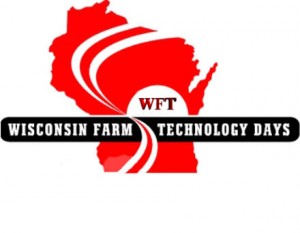 A 100-year-old paper mill in Northern Wisconsin is being converted to make biodiesel.
A 100-year-old paper mill in Northern Wisconsin is being converted to make biodiesel.
This press release posted on the Milwaukee Business Journal web site says Flambeau River BioFuels has received a $30 million U.S. Department of Energy grant to build and to operate a first-in-class refinery that will turn biomass from forestry and agricultural operations into biodiesel at an existing pulp and paper mill in Park Falls:
When in full operation, the biorefinery will produce at least 6 million gallons of liquid fuels per year in the form of renewable sulfur-free diesel. The biorefinery will not be dependent on any food-based feedstock materials, but rather on by-products or residuals from forest and agricultural sources. The biorefinery will also generate at least 1 trillion BTUs per year of process heat that will be sold to Flambeau River Papers, which will make it the first integrated pulp and paper mill in North America to be fossil fuel free.
“This grant supports Flambeau River BioFuels’ goal to be a major contributor in achieving the Federal government’s goal of increasing renewable fuels production and reducing our nation’s dependence on Mideast oil,” said Bob Byrne, President, Flambeau River BioFuels. “With this funding, we will be able to accelerate the retrofitting of this mill from a pure pulp and paper plant to a broader production facility that will produce biofuels within the same facility, thus sharing key infrastructure elements and costs.”
The plant is expected to help in two different areas of the area’s economy on two different levels: in the short term, it will produce engineering and construction jobs to convert the paper mill into a biodiesel plant; and in the long term, it will create highly skilled jobs at the plant and in the area’s logging industry. The plant is expected to open in 2010.


 Officials with a Maryland biodiesel plant, where a man was killed while working on bringing the idled refinery back on line in May, say they will continue to work to get the facility back in to production.
Officials with a Maryland biodiesel plant, where a man was killed while working on bringing the idled refinery back on line in May, say they will continue to work to get the facility back in to production.
 An Illinois biodiesel company has bought a biodiesel refinery that had been mothballed. Blackhawk Biofuels, LLC, with $19.8 million in financial backing from the state of Illinois, has bought the 45-million-gallon-a-year biodiesel plant at Danville, Illinois.
An Illinois biodiesel company has bought a biodiesel refinery that had been mothballed. Blackhawk Biofuels, LLC, with $19.8 million in financial backing from the state of Illinois, has bought the 45-million-gallon-a-year biodiesel plant at Danville, Illinois. “As a business, we have always done everything we can to positively impact our customers and our economy,” stated Chris Barstow, president of Favorite Foods. “Now, we are taking steps to positively impact our environment. By investing in initiatives like a Biodiesel program, energy efficiencies in our new warehouse, and an expanded recycling program that will allow us to reduce waste exponentially, Favorite Foods can give back in a whole new way.”
“As a business, we have always done everything we can to positively impact our customers and our economy,” stated Chris Barstow, president of Favorite Foods. “Now, we are taking steps to positively impact our environment. By investing in initiatives like a Biodiesel program, energy efficiencies in our new warehouse, and an expanded recycling program that will allow us to reduce waste exponentially, Favorite Foods can give back in a whole new way.” A coalition of business, environmental and energy policy organizations advocating aggressive development of renewable energy will team up with members of Congress for the the 11th Annual Congressional Renewable Energy & Energy Efficiency EXPO + Forum, July 31st in Washington, DC.
A coalition of business, environmental and energy policy organizations advocating aggressive development of renewable energy will team up with members of Congress for the the 11th Annual Congressional Renewable Energy & Energy Efficiency EXPO + Forum, July 31st in Washington, DC.

 “Rapid determination of EYP of corn can be a valuable step in improving ethanol plant efficiency,” said Dennis Thompson, ICIA chief executive officer. “ICIA recognizes the need for rapid measurement tools based on standardized reference lab methods. Our initial validation procedures have shown a strong correlation between the Pioneer EYP calibration and our laboratory method.”
“Rapid determination of EYP of corn can be a valuable step in improving ethanol plant efficiency,” said Dennis Thompson, ICIA chief executive officer. “ICIA recognizes the need for rapid measurement tools based on standardized reference lab methods. Our initial validation procedures have shown a strong correlation between the Pioneer EYP calibration and our laboratory method.” “Fueling Revolution” is the theme for the 2008 Ethanol Conference and Trade Show being held August 12-14 at the Qwest Center in Omaha, Nebraska.
“Fueling Revolution” is the theme for the 2008 Ethanol Conference and Trade Show being held August 12-14 at the Qwest Center in Omaha, Nebraska. According to the company, Primafuel Solutions will deliver next-generation, market-ready technology solutions to the biofuels industry. By taking Primafuel’s advanced technology platforms to market, Primafuel Solutions is working with customers to facilitate the transition to more sustainable bio-refineries. The team’s initial offering is SMAART™Oil, a down-stream system that extracts more food and fuel from the same bushel of corn.
According to the company, Primafuel Solutions will deliver next-generation, market-ready technology solutions to the biofuels industry. By taking Primafuel’s advanced technology platforms to market, Primafuel Solutions is working with customers to facilitate the transition to more sustainable bio-refineries. The team’s initial offering is SMAART™Oil, a down-stream system that extracts more food and fuel from the same bushel of corn.